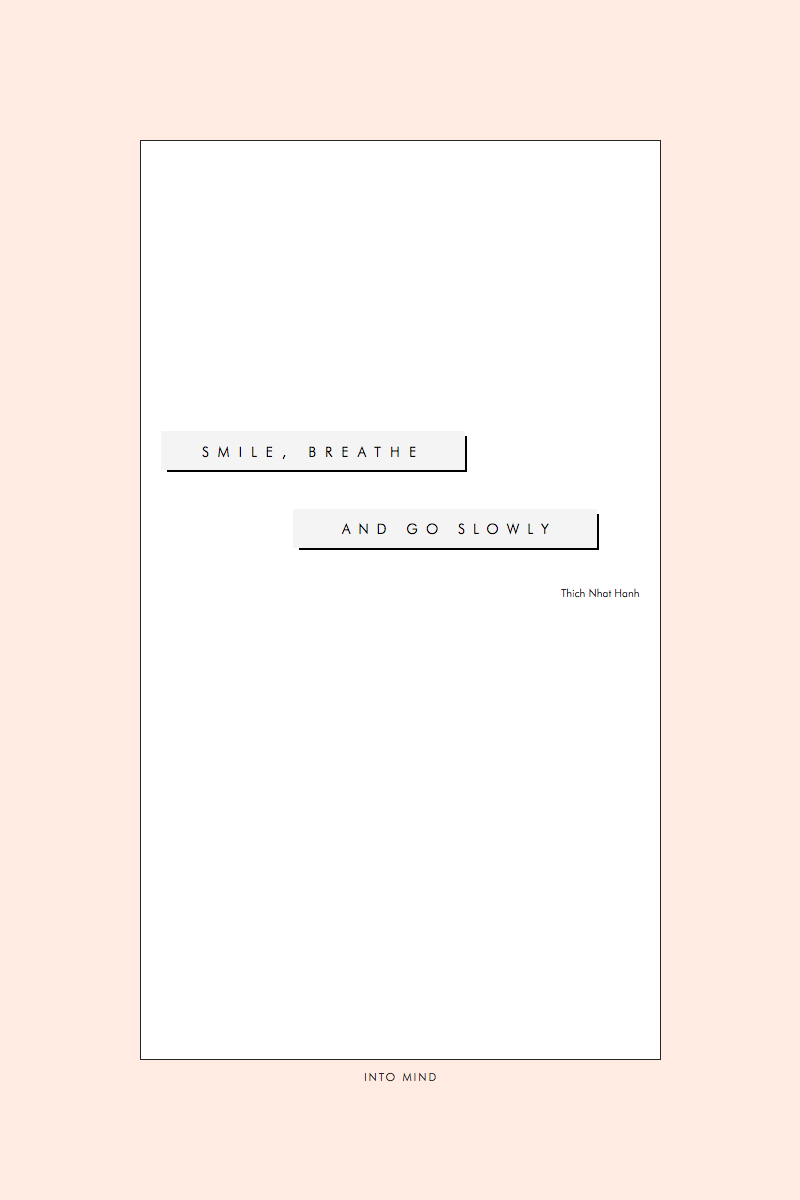Minimalism: A beginner's guide
This post is a little primer on minimalism and simple living, with a couple of thoughts on how to slow down and add a bit of simplicity to your life. If you are interested in the topic, read through the post and then try to answer the questions at the end, on paper or even just in your head. Tomorrow’s post will then be all about what concrete steps you can take to start living a simpler, more intentional life.
What is minimalism?
The key idea of minimalism is this: Remove what isn’t adding value to your life, to make room for stuff that is.
LESS
clutter, time commitments, negative thought patterns and toxic relationships
MORE
time, space and energy for things that really matter to you
So essentially, minimalism is about figuring out which things, people and activities are important to you and which aren’t. Sounds pretty simple, right? The problem is that all too often we are way too caught up in the daily grind to pay any attention to what it is we want in life vs. what we think we should want (according to society, our environment or our own convictions). We lose touch with our values (or never become aware of them in the first place) and then we try to fill that void the best way we know how: with more stuff, more things to do, more people around us. We fill up our schedule to the brim, buy more than we need, stay glued to our social media feeds in the fear of missing out and go to event after event, even when we want nothing more than to spend our evening reading on the couch.
Minimalism is a way to go back to making conscious choices and living with intention, rather than letting it all just kind of pile up or allowing others to dictate how we spend our time.
Isn’t minimalism mainly about getting rid of possessions?
Not, but your possessions are a good place to start. The things you own, big and small, aren’t just stuff. They represent your history, aspirations, habits and values.
That’s why it can sometimes be so hard to let go of something as simple as an old t-shirt from high school. To you, it’s not just a t-shirt, it represents an important stage in your life and is tied to a whole lot of feelings and memories. Going through your stuff and getting rid of anything that does’t have a place in your life anymore can have a very therapeutic effect, because it forces you to closely assess and deal with those kinds of underlying emotions.
The state of our living space also tends to be a pretty accurate representation of the state of our mind. Psychological research has shown time and time again how physical clutter overloads our senses and stresses us out. We need a nice, clutter-free environment in order to feel rested, calm and content. And usually, once we’ve dealt with the clutter, tackling the bigger things in life that we might have been wrestling with, feels easier.
Get rid of my stuff? But I love my stuff!
Minimalism isn’t a numbers game. Its not about owning as little as possible or doing as little as possible. It’s about owning and doing exactly what you need or want to. So if you want to own 20 sweaters because you love every single one of them and wear them all, that’s great! But if your closet is a jam-packed mess that makes getting dressed a chore, that’s a different story.
Being a minimalist can mean lots of different things to different people. What one person might find 'too loud and busy’, might be the perfect minimalist living space for someone else, because it contains all the things she needs for her life and wants to have around her.
It’s a common misconception that minimalism is above all about LESS, about subtracting whatever possible. But really, it’s only about subtracting the bad stuff, the stuff that drains your energy. And then, once you have made some room, it’s just as much about adding back in.
So how can I start living a simpler life?
Ask questions! What things, people and activities are currently adding value to your life and which aren’t? What do you wish you had more time for? Some questions to get you started:
- Which 3-5 things are most important to you in life? Does the way you spend your time reflect these?
- What part of the day do you usually look forward to the most? Why?
- How does your living space make you feel?
- How many hours per day do you spend feeling rushed, stressed or anxious? What (or who) is causing that?
- What is your favourite place in your house/apartment? Why?
- How often do you do things just for fun?
- What activities always leave you feeling fresh and re-energised?
- Which of your commitments (side projects, clubs, memberships, etc.) truly add value to your life and which don't?
- If this week had an extra day, how would you spend it? How good are you at saying no?
To find out what concrete steps you can take to incorporate minimalism into your everyday life, check out this post: 9 easy, concrete ways to start living a simpler, more intentional life

